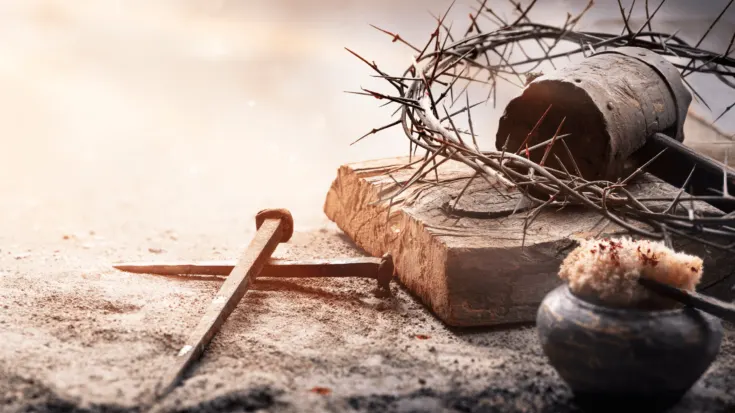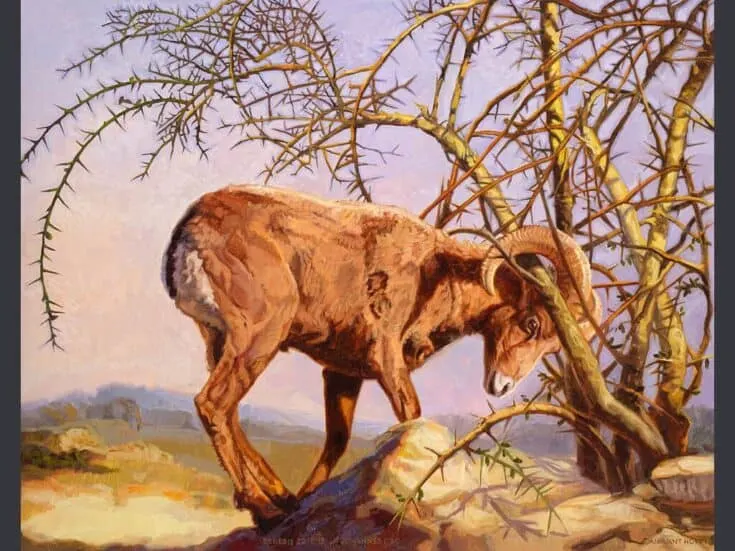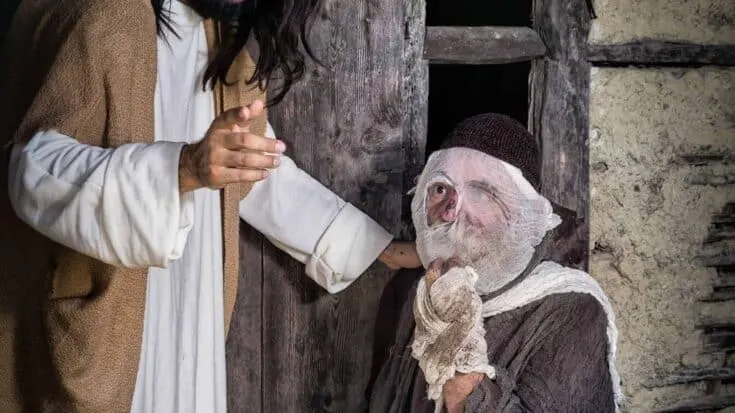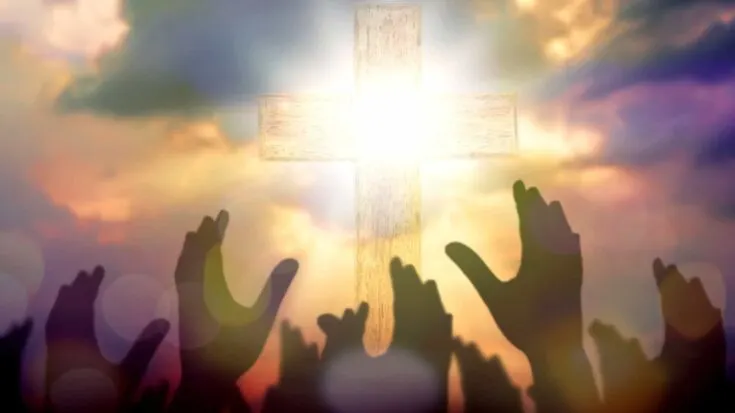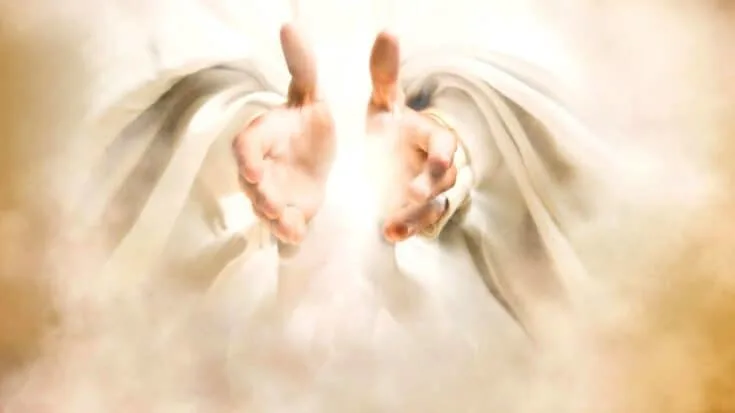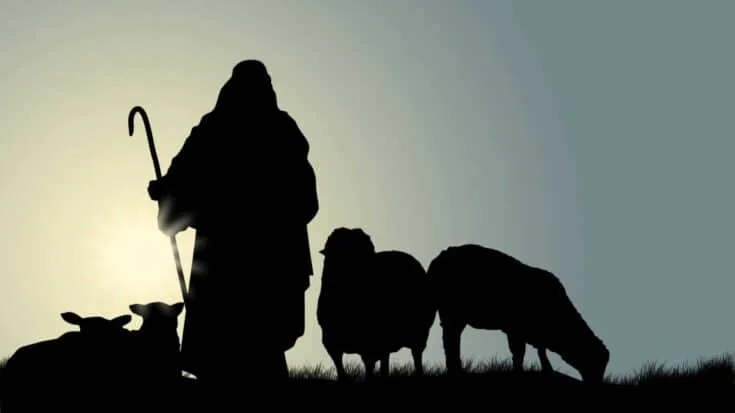In this article, we will continue our study on the names of God, and today, we will focus on Jehovah Nissi and how it means the Lord is my Banner.
We know that God uses specific names that He placed in the Bible to reveal aspects of His character and the role He wants to play in our lives.
Jehovah Nissi is one name I have always viewed as unique and almost mysterious, perhaps because this name for God deals more with God’s role in our lives than His character directly.
Jehovah Nissi is one of the names of God you often hear quoted during spiritual warfare and praise and worship sessions. It’s a powerful proclamation of victory and conquering new territory.
But why is that the case? What does being a banner really mean? Let’s answer that question by looking at the name Jehovah Nissi and its use in the Bible.
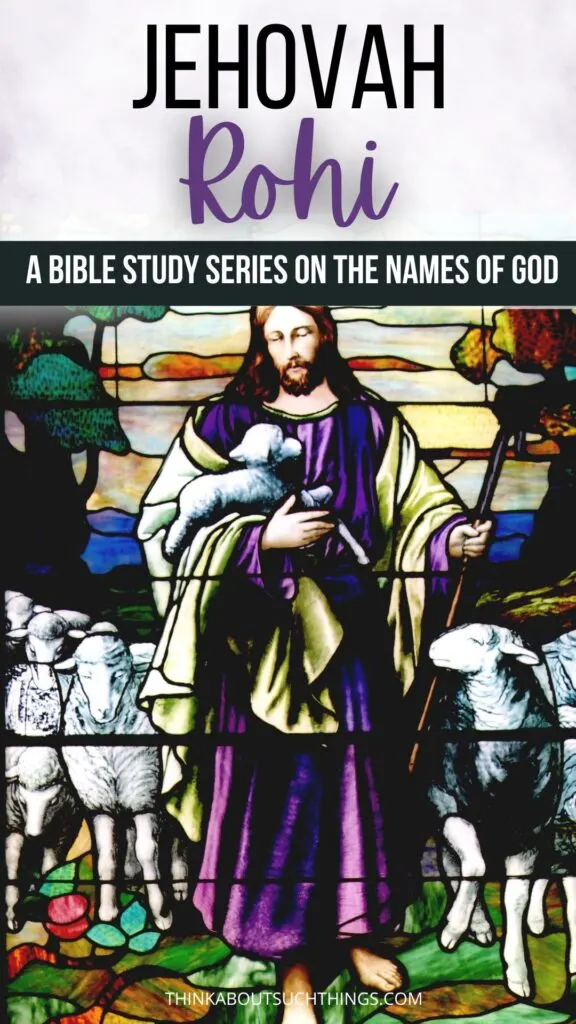
What Does Jehovah Nissi Mean? A Look At The Hebrew Meaning
The name Jehovah is often translated as “I am that I am” or “I am the one who is.” We already studied that part of God’s Name in detail in other posts like Jehovah Rohi, so that we won’t go into it in-depth in this one.
It’s enough to say that God wants us to know He is Who He says He is, and the second part of the name reveals that aspect of His character.
The word “Nissi” means a standard, ensign, signal, or sign.
Strong’s Concordance 3071
יְהוָֹה נִסִּי Yhwh niççiy, yhwh nis-see´; from 3068 and 5251 with the prononimal suffix; Yhwh (is) my banner; Yhwh-Nissi, a symbolical name of an altar in the Desert:Yhwh-nissi.
Strong’s Concordance 5251
נֵס neç, nace; from 5264; a flag; also a sail; by implication, a flagstaff; generally a signal; figuratively, a token:—banner, pole, sail, (en-)sign, standard.
This word (nace or nissi) alone occurs several times in the Bible; for example, in Numbers 21:8, Moses put a snake on a pole to heal the bitten people.
Then the Lord said to Moses, “Make a fiery serpent, and set it on a pole; and it shall be that everyone who is bitten, when he looks at it, shall live.”
It always refers to a standard or a banner, though the Septuagint translates it as “refuge” and the Vulgate calls it “exaltation.”
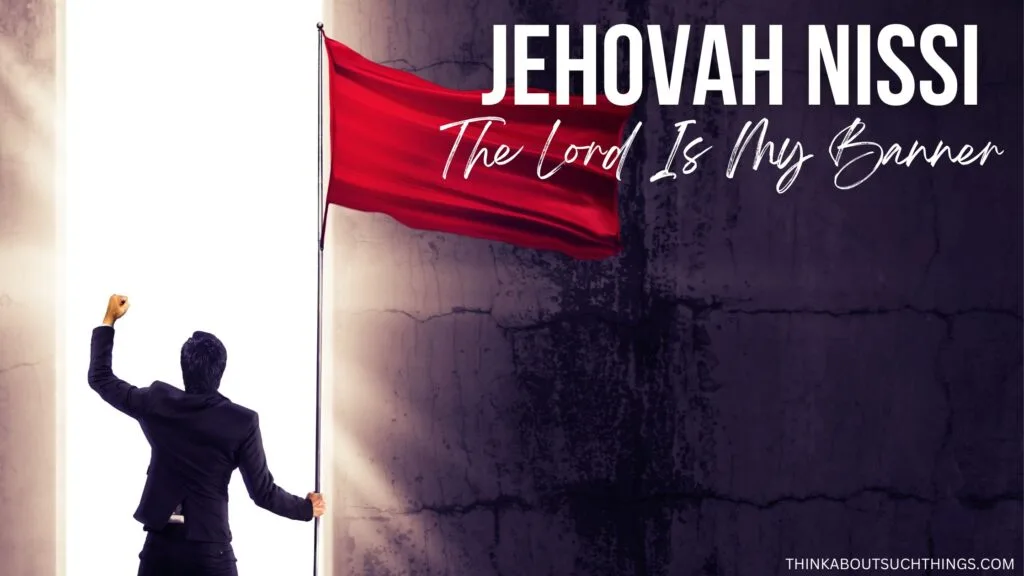
The last two translations aren’t common, but we can see how it makes sense within the context of the accepted meaning of Jehovah Nissi: the Lord is my Banner.
Nissi refers to a type of flag that armies raise as a standard of the kingdom for which they fight. It’s like a proclamation of who our God is.
Two other interesting translations of the word “Nissi” from the NASB translation are:
- A distinguishing mark. This is an interesting take on the meaning of the word, as a flag or a banner is definitely a distinctive mark. Still, we also know that the Israelites (and Christians today) are to be separated and set apart (distinguished) from the world.
- A warning. The banner serves as a warning for others that we are the set-apart people of God.
All of these interpretations will make more sense when we look at the context of the only mention of Jehovah Nissi in the Bible: Exodus 17. Let’s do it!
Exodus 17 – Jehovah Nissi: The Lord Is My Banner
Now Amalek came and fought with Israel in Rephidim. 9 And Moses said to Joshua, “Choose us some men and go out, fight with Amalek. Tomorrow I will stand on the top of the hill with the rod of God in my hand.” 10 So Joshua did as Moses said to him, and fought with Amalek. And Moses, Aaron, and Hur went up to the top of the hill. 11 And so it was, when Moses held up his hand, that Israel prevailed; and when he let down his hand, Amalek prevailed. 12 But Moses’ hands became heavy; so they took a stone and put it under him, and he sat on it. And Aaron and Hur supported his hands, one on one side, and the other on the other side; and his hands were steady until the going down of the sun. 13 So Joshua defeated Amalek and his people with the edge of the sword. 14 Then the Lord said to Moses, “Write this for a memorial in the book and recount it in the hearing of Joshua, that I will utterly blot out the remembrance of Amalek from under heaven.” 15 And Moses built an altar and called its name, The-Lord-Is-My-Banner; 16 for he said, “Because the Lord has sworn: the Lord will have war with Amalek from generation to generation.” - Exodus 17:8-16 NKJV
Exodus 17:8-16 tells us how the Amalekites attacked Israel at Rephidim. Interestingly, this was the first battle that Israel fought after leaving Egypt; they were an untrained group of formerly enslaved people. These people were not warriors!
To top it off, they still struggled to understand who their God was (hence their unbelief in the first seven verses of Exodus 17).
On the other hand, the Amalekites were a nomadic warrior tribe well-versed in combat and decided to attack this ragtag group of people.
So, Moses told Joshua to choose men to go out and fight against the Amalekites. It was the first time that Israel had to form an army. Not even at the Red Sea, when Pharoah’s soldiers were storming them, did they have to do this. However, a ragtag group of untrained soldiers was not going to win them a victory.
Moses, Aaron, and Hur stood on a hill overlooking the battle, and Moses raised his staff in the air. By now, the Israelites associated Moses’ staff with the power of God since God used it in Moses’ hand so often to show what He could do.
Whenever Moses raised the staff, the battle turned in favor of Israel, but when he lowered it, the Amalekites would conquer.
Eventually, Aaron and Hur had to help hold Moses’ arms in the air as he grew tired, and by that evening, the Israelites were victorious.
We know that the Amalekites weren’t entirely eradicated yet, since God promised that He would “…utterly blot out the memory of Amalek from under heaven” (verse 14.)
But now we get to the crucial part. Verses 15 and 16 say,
And Moses built an altar and called its name, The-Lord-Is-My-Banner; 16 for he said, “Because the Lord has sworn: the Lord will have war with Amalek from generation to generation.”
From this, we can see two things:
- We can see the literal meaning of “The LORD is my Banner” as referring to the staff that Moses held up.
By that time, the staff was a symbol of God’s power, and by holding it up over the battle, Moses was showing the Lord’s power over the war, rallying the troops, and encouraging them that the power of God was fighting with them. - On a spiritual level, the Israelites did not win because of their superior military skill and tactics. We suspect they were pretty well-equipped since the Israelites raided the homes of the Egyptians before they moved.
But the battle was won only because they fought it in the Name of the Lord, as Moses confirmed by naming the altar what he did.
How God Is Our Banner Today
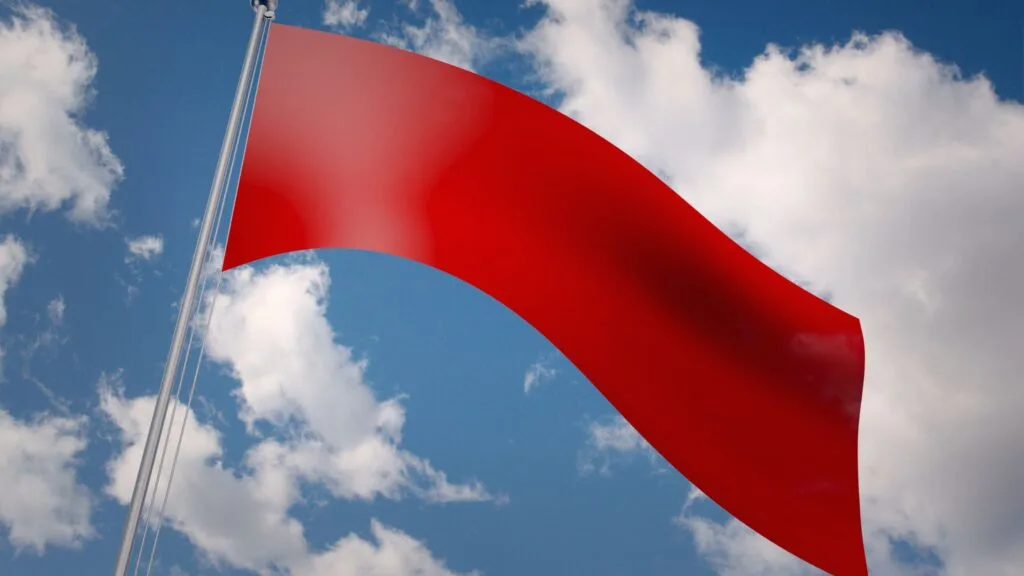
Calling God “Jehovah Nissi” is a bold proclamation that the Lord is our Banner. But what does that mean for today’s believers?
Let’s start with what the banner means. The Israelites were righteous, not because they were without sin, but because they were God’s elect. He chose them as His people and told them how to live righteously. That’s why they could boldly state that the Lord was their Banner.
We are in a different relationship with God after Jesus. Our righteousness has already been paid for. We are living in the inherited righteousness of Christ.
We still pursue to live the righteous lives He desires, but we no longer have to earn our righteousness. This means we can claim the Lord as our Banner even more!
Let’s look at it from a different point for a moment. If you’re a sports fan, think about your favorite team.
Some people are fans in the subtle sense of the word; they’re happy when their team wins, but they’re not incredibly invested in it. But others are genuinely fanatical; you walk into their homes and have no doubt about who they support.
You see memorabilia displayed everywhere, and when the team’s playing, they proudly wear their team’s colors. Some go as far as to paint their faces!
They will stand in front of the opposing team’s supporters, displaying their flags and team-colored clothes, and tell the other side how badly they will lose, even more so when their team is winning!
But what does that have to do with Jehovah Nissi?
Having the Lord as our Banner is boldly wearing the colors of your team, the Kingdom of God!
It’s standing in the face of every enemy, not just declaring how your team will win, but knowing full well that your team has already scored the victory!
Just as sports fans have nothing to do with the victory, but they revel in it nonetheless, we did not win the victory. That belongs to Christ alone. But that does not stop us from reveling in His victory!
This makes the name Jehovah Nissi a call to praise and worship. We state that the Lord is our Banner to praise Him for His victory and for allowing us to partake in that.
It’s also a powerful declaration in the face of any adversity and spiritual warfare we may be facing. God is already victorious, and nothing that the enemy or the world can throw at us can take that away from us!
With that, we can proudly lift the Lord as our Banner over every situation in our lives. Team Jesus forever!
The Names of God Series
If you have enjoyed learning about God’s name, Jehovah Nissi then please check out some of the other name of God I have been studying on! Learning His names is a great way to grow closer to the Lord and see Him more and more for who He is.
The Names of God
Even though the name Jehovah Nissi only occurs once in the Bible, it is a powerful statement that declares God’s victory, His reign, and our righteousness through Jesus Christ. Let us lift the Lord as our Banner, not only when we feel like it or during a passionate praise and worship session, but every moment of every single day. He is always our Banner!
If you would like to leave me a comment, I would love to hear from my readers!

Melissa is a passionate minister, speaker and an ongoing learner of the Bible. She has been involved in church and vocational ministry for over 18 years. And is the founder of Think About Such Things. She has the heart to equip the saints by helping them get into the Word of God and fall more in love with Jesus. She also enjoys family, cooking, and reading.
She has spoken in churches in California, Oregon, Texas, and Mexico and has been featured in Guidepost Magazine and All Recipes Magazine. Read More…

